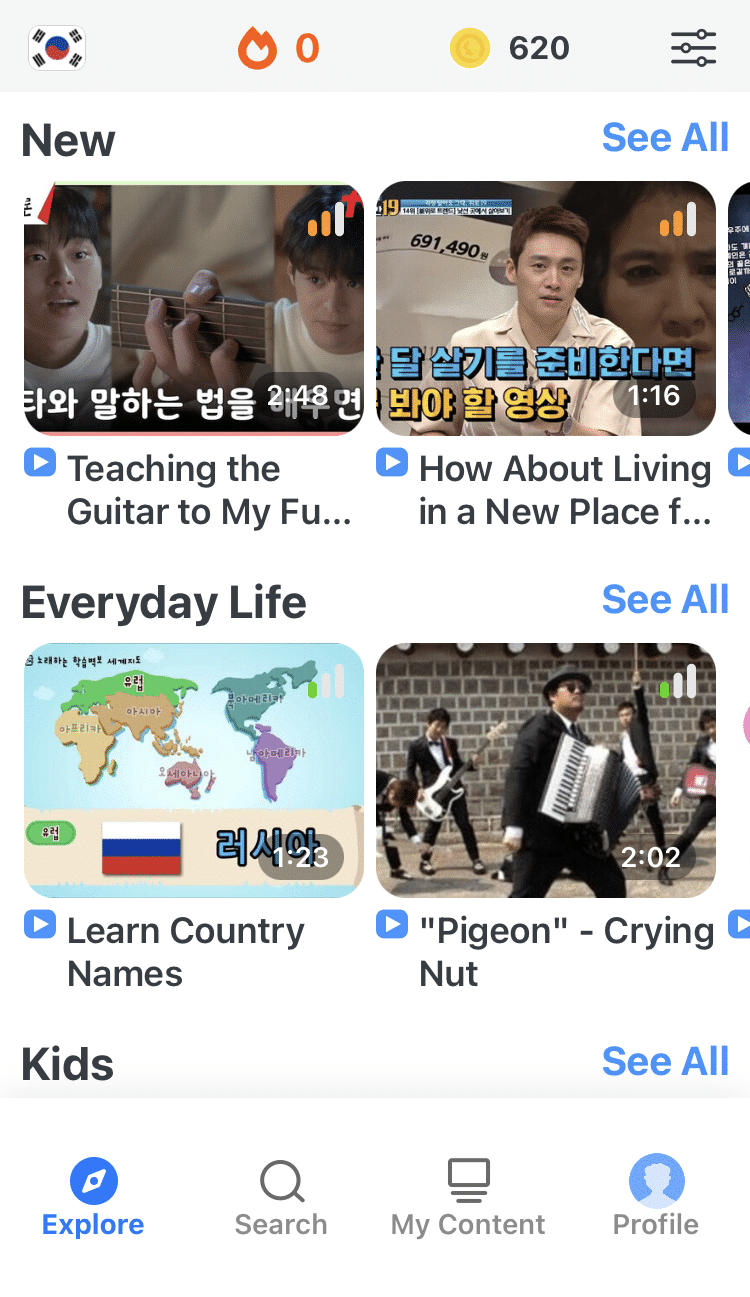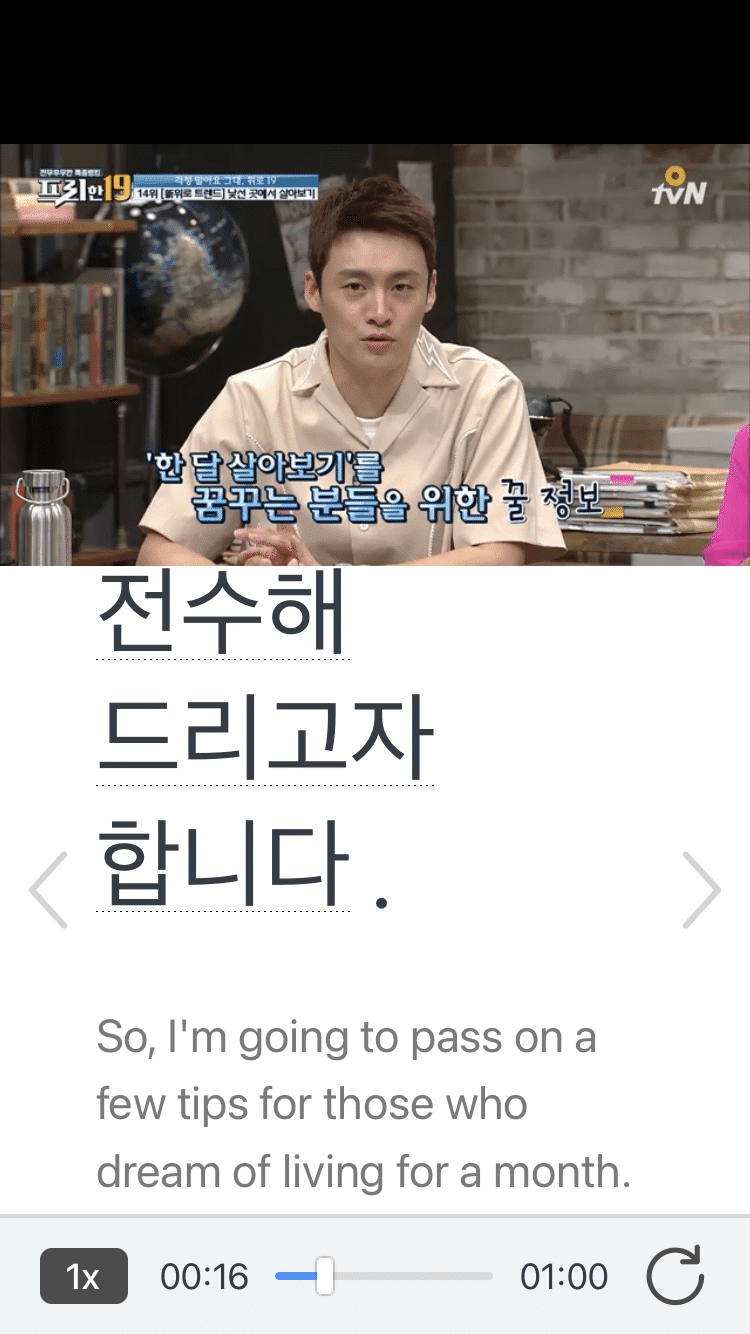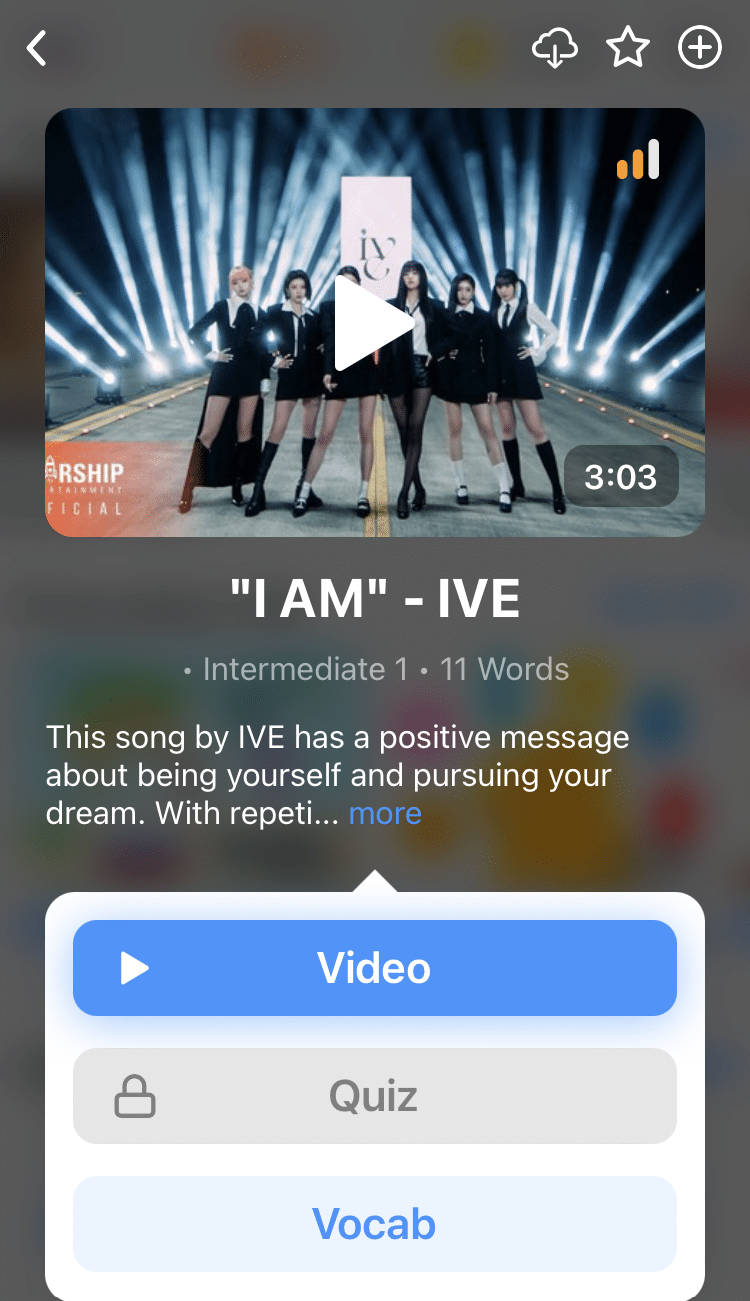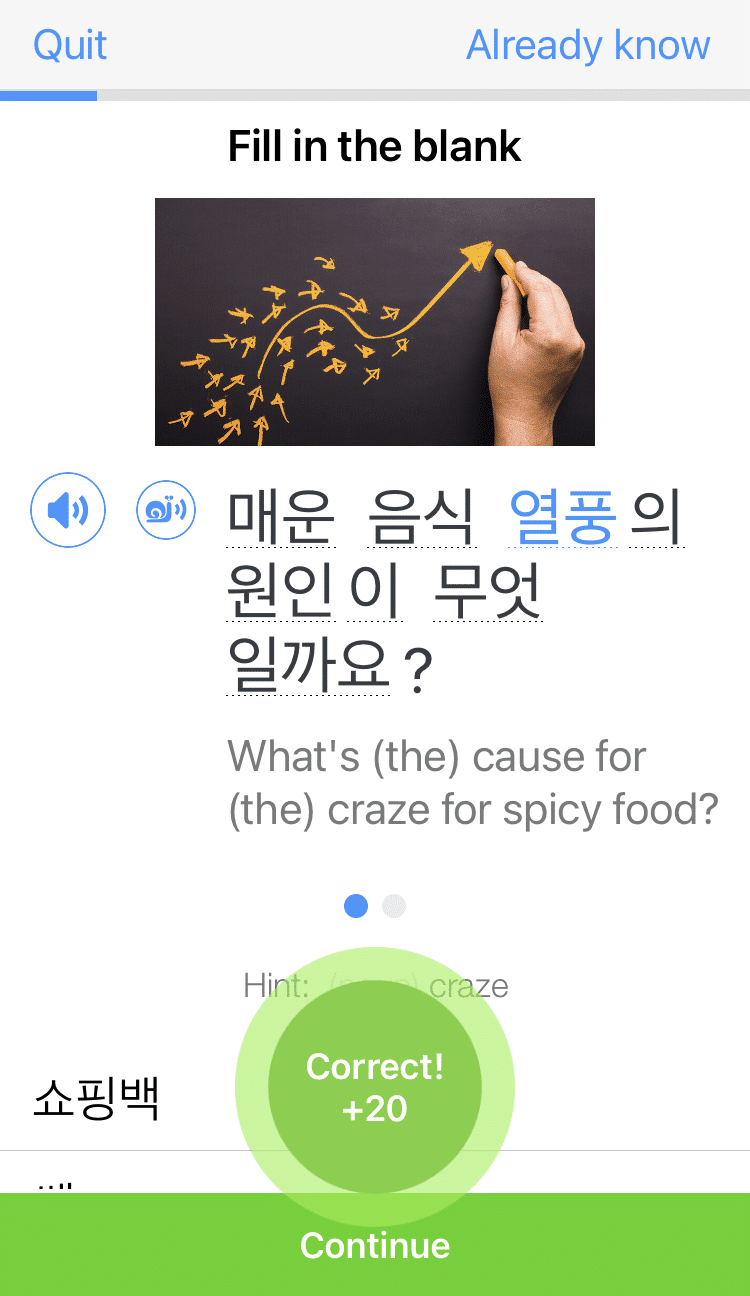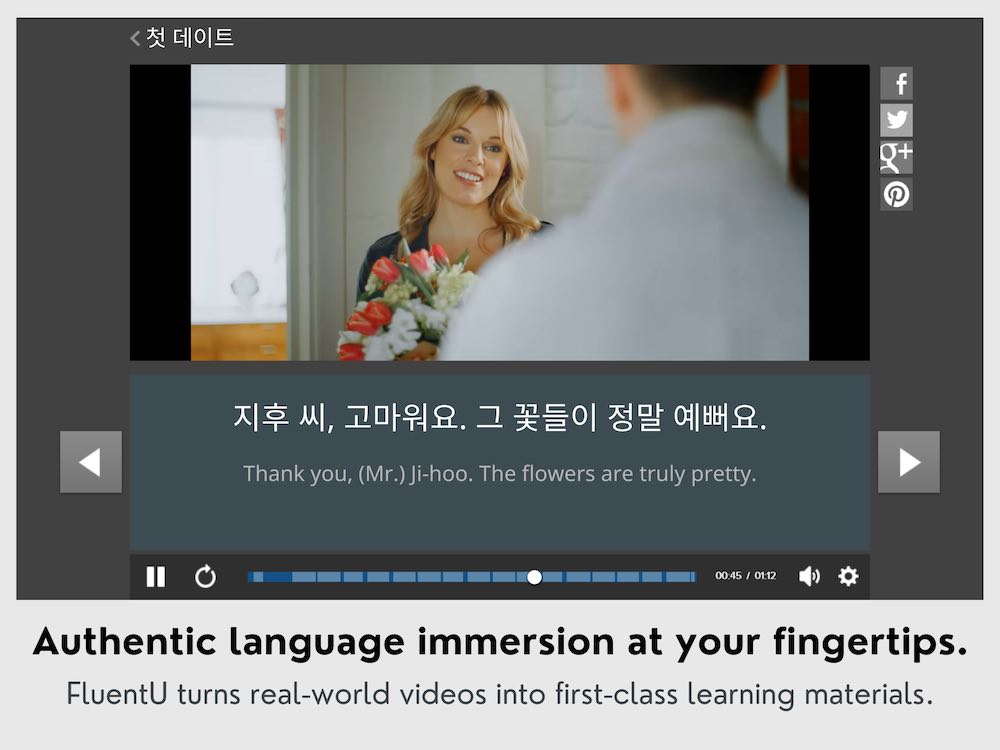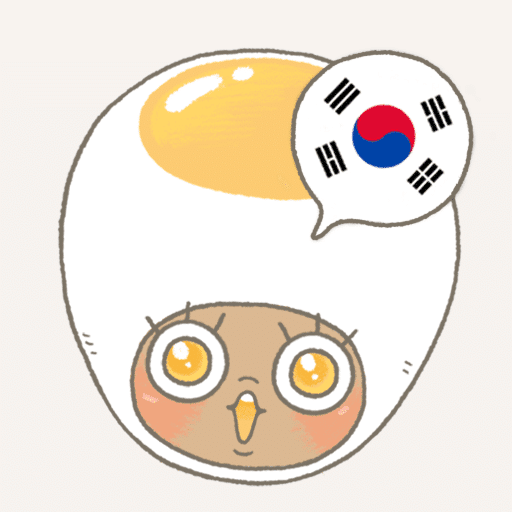
How to Get Korean Immersion at Home or Abroad
Immersion is undoubtedly one of the best ways to up your Korean game quickly.
You’ll find yourself understanding things much faster, and you’ll gain a more in-depth understanding of Korean culture, too!
Whether you want to do in-person immersion programs in Korea or you’re planning to do online immersion right at home, I’ve got you covered with this post.
Contents
- How to Achieve Korean Immersion at Home
- How to Achieve Korean Immersion Abroad
- The Best Immersion Programs in Korea
- And One More Thing...
Download: This blog post is available as a convenient and portable PDF that you can take anywhere. Click here to get a copy. (Download)
How to Achieve Korean Immersion at Home
While it takes some dedication, it’s possible to achieve language immersion in your home.
After all, the two biggest barriers to in-country immersion are time and money. You can’t just pause the life you’re living to go live in Seoul, so home-based immersion is a more approachable alternative.
After all, the internet provides an endless supply of authentic materials that make it feel like we’re actually sitting at a café in downtown Seoul, including blogs, movies and podcasts.
Here are my top recommendations for DIY immersion:
Change your device language settings
One of the simplest things you can do is find the “Language Settings” of your devices and change them to display in your target language. The same goes for your social media accounts like Facebook, Instagram and Twitter.
You may find yourself hopelessly going back and forth between displays in Korean and English. Before long, something will click, and you’ll find yourself operating your gadget like a Korean maestro. Hang in there.
For advanced learners, switching to Korean will provide you with plenty of opportunities to practice your Hangul, the Korean writing system.
Label objects around the house in Korean
Label all the everyday objects that you use with their Korean names. Try placing a Post-it note on your coffee mug that reads “컵 (keob).” In the bathroom, label the toilet, the mirror and the places where you store the soap and shampoo.
You’ll see these labels on a daily basis and they’ll become second nature to you. Over time, you can slowly take off the labels. When you see the cup, you’ll immediately think “컵 (keob).”
To reinforce your lessons once the labels start to disappear, be sure to say the words out loud as you see the items. You can also create more advanced labels with full Korean phrases and sentences.
Cook and eat Korean food
Imagine this: You’re slurping on ramyeon or chowing on instant jjamppong while watching “Running Man.” A few minutes later, you run to the fridge to pour yourself some cheongju. Doesn’t it kind of feel like you’re actually in Korea?
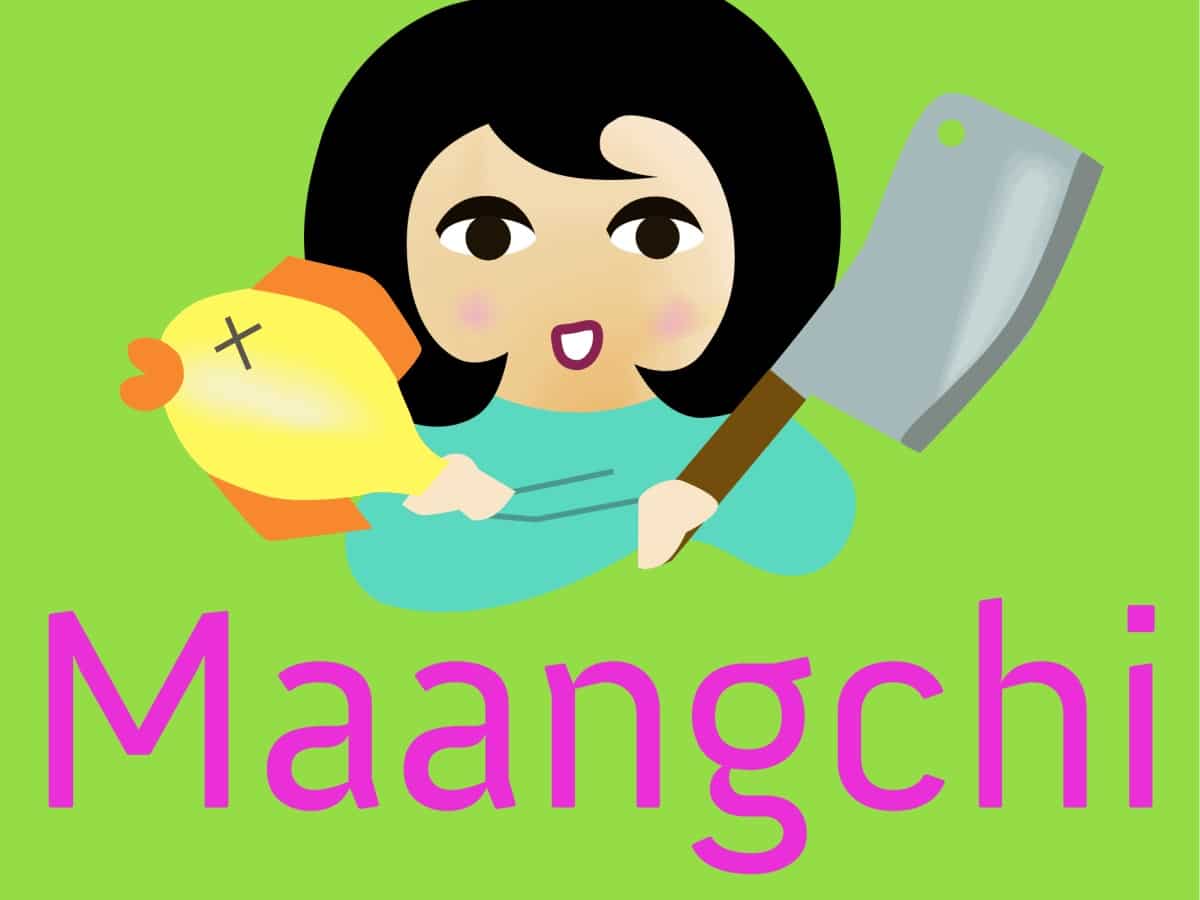
With food, our multisensory journey comes full circle. You can explore Korean recipe websites and start following their instructions in complete Korean. To get started, try reading a blog like Maangchi—basically only the dish names are in Korean, and they’re also in English.
Food has the power to transport you to a different place. It proves that Korean isn’t just a different language, but an entire culture that shares many features similar to yours while still being truly unique.
Find a language exchange partner
Home might just be the best place to meet native speakers, thanks to language exchange online.
A “language exchange” is exactly that—a trading of languages. Let’s say you’re an English speaker out to learn Korean. You would need to find somebody, a Korean native speaker, who wants to learn English. It’s the purest win-win situation.
These apps and websites can connect you with thousands of Korean native speakers.
5 Best Korean Language Exchange Apps | FluentU Korean Blog
Searching for a Korean language exchange partner? Here are five great Korean language exchange apps that can help you meet new friends and test out your Korean skills.…
Explore Korean music (especially K-pop)
Have you ever noticed that you never forget those children’s songs you sang when you were a little kid? Music is one of the most effective ways to learn any language—especially when it comes to vocabulary.
All the elements in K-Pop click to make language learning inevitable. For example, listening to Big Bang’s “Loser” or Girls’ Generation’s “Party” can instantly make you feel like you’re rocking out at a nightclub or live concert.
Korean songs have great melodies and catchy tunes so that the lyrics accompanying them become highly memorable, and the visuals in many Korean music videos are immersive all by themselves.
https://www.fluentu.com/blog/korean/korean-music/
Hone your listening skills with audiobooks
When you’re at home and going through your daily chores, you can also have Korean audiobooks playing on your device.
To make the most out of audioboks, you’re encouraged to work and wrestle with the language. Listen to it, preferably while reading along with a copy of the text.
Don’t worry if you don’t understand everything. The important part is to expose yourself to the Korean language and try to intuit the meaning from the words and sentences you hear.
Where to Find the Best Korean Audiobooks | FluentU Korean Blog
Korean audiobooks are a great way to speed up your language learning through listening. Here are four places you can find audiobooks in Korean, such as Audien, Darakwon…
Subscribe to Korean podcasts
Korean podcasts come in all shapes in sizes, and many are designed specifically for language learners. These are often so sweet and simple that I’d recommend listening to them while you’re lying in bed and resting.
The main difference between audiobooks and podcasts is that podcast creators come out with new episodes on a regular basis, unlike audiobooks, which are already complete products. With podcasts, you have new material coming your way all the time:
5 Recommended Korean Podcasts | FluentU Korean Blog
Korean podcasts are great technological tools for language learners. Take Korean on the go, in the car, on the subway with these five podcasts that cover a range of…
Binge-watch online Korean videos
Visuals must be a big part of your home-based immersion process. Good thing that the internet holds almost an unlimited number of videos that the Korean language learner can take advantage of:
https://www.fluentu.com/blog/korean/learn-korean-videos/
Of course, another resource that you can’t miss out on would be YouTube. Whatever your interest, you can find interesting Korean YouTube channels:
The 25 Best Korean YouTube Channels [2024 Roundup] | FluentU Korean Blog
Korean YouTube channels are an excellent (and free) learning tool! Check out these 25 channels that cover everything from basic Korean phrases to advanced listening…
YouTube mostly has auto-generated Korean subtitles, though, so if you want videos with accurate subtitles (and other learning tools), FluentU is a useful platform.
FluentU takes authentic videos—like music videos, movie trailers, news and inspiring talks—and turns them into personalized language learning lessons. You can try FluentU for free for 2 weeks. Check out the website or download the iOS app or Android app. P.S. Click here to take advantage of our current sale! (Expires at the end of this month.)
Dive into K-dramas and variety shows
Whether you like dramas, fantasy shows, comedies or shows set in interesting locations like Korean hospitals, there’s sure to be a Korean show that meets your tastes:
The 36 Best Korean TV Shows [Dramas] | FluentU Korean Blog
Looking for the best Korean TV shows? Korean dramas are filled with addicting plotlines, lovable characters and authentic expressions—perfect for language learners of…
Besides, you don’t have to choose just one! Keeping up with multiple Korean shows allows you to learn Korean from the various topics explored in each show and have a lot of fun along the way. Of course, you can also dip into reality TV shows like Running Man or movies like “Windstruck” or “Train to Busan.”
Make daily progress with a Korean course
For more structure, you can try out Korean language courses online. Listen to the free audio course developed by the Foreign Service Institute, or take advantage of 16 hours’ worth of audio from Pimsleur—one of the leading providers of language learning content.
Aside from those, you have a lot more choices:
14 Best Online Korean Courses of 2024 | FluentU Korean Blog
The best online Korean courses allow you to learn at your own pace in a way that suits your learning style, skill level and personal interests. Click here to find out…
Download handy language apps
Finally, keep these two apps around in your phone so you can constantly learn Korean:
Eggbun
Eggbun’s folksy charm will undoubtedly captivate you. The app’s graphics, fonts, colors, layout and illustrations ensure that your immersion into Korean is as easy and seamless as possible. You’ll have “Lanny,” a sunny-side-up wearing mascot and your personal tutor, to guide you through over 1,000 lessons.
The app has everything from survival Korean for travelers to business Korean for professional communications. There’s a whole section that deals with the culture, filled with content concerning Korean idioms, K-pop slang, funny Korean acronyms and more. The app is refreshingly light and makes Korean learning less daunting.
Google Lens
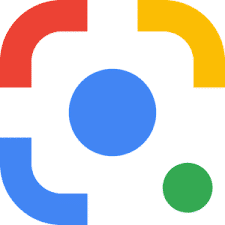
If you ever find yourself in Korea (or a nearby Korean neighborhood), unable to fathom the inscrutable Hangul characters plastered on storefronts and window displays, just fire up Google Lens and use its language detection technology.
Aim your phone’s camera at the Hangul characters and boom: instant translation! You can do this for any text, whether it’s from a menu, a newspaper headline or a chapter in a Korean children’s book.
With the app, your little trip to Koreatown can become a venerable language learning experience.
You can also download several other Korean learning apps:
Best App to Learn Korean: 15 Contenders for 2024 | FluentU Korean Blog
The best app to learn Korean can make a huge difference when learning new vocabulary and grammar! Install any of these 15 apps to learn Korean and keep your learning in…
How to Achieve Korean Immersion Abroad
Aside from language immersion at home, you can always go for the simplest, most straightforward method: stay in a country where your target language is spoken. You won’t just be surrounded by Korean—you’ll be living it. When you’re studying Korean in Korea, you have opportunities to practice and learn all day long—at the grocery store, out with friends, watching TV and on and on.
If you’re planning to go this route, here are some strategies that you should use while abroad in Korea:
Break away from the tourist mindset
Visit non-touristy areas and neighborhoods to get a stronger taste of Korean culture and check out the local events that natives would attend. Not only will this give you fewer excuses to use your native language, you’ll probably find these sites much more interesting!
Consume Korean media
Chow down on Korean media, including K-pop music, sitcoms, dramas, newspapers and podcasts. Don’t rely on media in your native language during your leisure time.
Jot down new vocabulary/language tips
When you encounter a new word or a helpful tip on anything from pronunciation to etiquette, write it down. Then, check it over whenever you have the time (when you’re on the train, lounging in your room or waiting in line for some awesome street food).
Try the language
Yes, it’s terrifying, but if you don’t constantly practice what you’re learning in a real-world context, then what’s the point? Don’t be afraid of messing up or looking foolish in front of native Koreans. Your efforts will often be appreciated.
Don’t overwhelm yourself
Plan independent study sessions consistently but reasonably. And remember, it’s not all about flashcards and quizzes! Going out for a drink with Korean speakers or seeing a movie in Korean are nice ways to slow down and relax but still get lots of language practice.
Next, we’ll look at some excellent options for focused Korean studying that’ll ensure you get the most out of your stay in Korea.
The Best Immersion Programs in Korea
These intensive study programs will push you to reach new levels with the language:
Sogang University’s Korean Immersion Program

Location: Seoul
Program date: Summer
Price range: Application fee: 80,000 KRW / Tuition: 2,260,000 KRW
The Korean Language Education Center at Sogang University offers a four-week, summer-based program with a wide application pool of high school graduates, university students and adult learners.
The focus of the curriculum is on speaking rather than grammar, in an effort to improve your ability to navigate real-world situations in Korean.
Within 30 hours of class per week, you’ll be learning the language while delving into cultural lessons in topics such as Korean cooking, handcrafting and dance. The program also offers a variety of field trips to historical sites, musical performances and local festivals.
One of its unique advantages is the chance to participate in a language exchange with a native Korean speaker, so you’ll get to both teach and learn while gaining a new friend!
KLI Korean Language Program

Location: Seoul or Incheon
Program date: Year-round
Price range: Varies by program
If you’re looking for a variety of program options, KLI is a good place to start. There’s a regular and an advanced program, a shorter three-week one, a culture-focused summer program and more.
The classes are conducted in Korean, so while it’ll be a challenge, you’ll be developing your language skills in an immersive and supportive environment. If you’re especially interested in cultural excursions, your best bet would be either the summer or three-week programs, as field trips are established in their curricula.
ISA Programs in Seoul

Location: Seoul
Program date: Year-round
Price range: Varies by program
ISA (International Studies Abroad) offers international programs for college students from the U.S. and Canada. At ISA’s Seoul location, you can enroll in a program that includes both a Korean language course and business/economics courses that you’ll take alongside Korean locals.
This is one of the less immersive programs on this list, but it is a nice option for getting your feet wet in academic life in South Korea.
The language course is available for multiple levels from beginner to advanced. The business course is taught in English, as are a number of their other courses available in the sciences, humanities and other fields.
Moreover, because this program caters to university students, it’ll be carried out in a typical, college-style study abroad experience with dedicated staff to cater to your needs. Excursions and cultural activities are included in the tuition fee and take place in and out of Seoul. Housing is offered on the program campus sites.
HUFS Center for Korean Language and Culture

Location: Seoul
Program date: Year-round
Price range: Application fee: 60,000 KRW / Tuition: 1,630,000 KRW
Run by the Hankuk University of Foreign Studies, the standard program at the HUFS Center for Korean Language and Culture provides a targeted language program split across six proficiency levels. The program runs for 10 weeks and is predominantly focused on communication and conversation. To successfully complete a level, you have to attend a certain number of classes and pass a final examination.
Because this program lasts multiple months, you can rest assured that you won’t be rushing through lessons, and you’re likely to jump up a proficiency level after completion. But it’s not all about the classroom—there are cultural activities and festivals as well. As an alternative, there’s also a short-term program that runs for four weeks in the summer and spring.
Chungnam National University’s Korean Language Course

Location: Daejeon
Program date: Year-round
Price range: Tuition: 1,300,000 KRW
Located in South Korea’s fifth largest city, Chungnam National University hosts a special program to teach foreigners Korean language and culture. The university offers a variety of foreign language courses, and its representative Korean course is split into six proficiency levels of about 10 weeks (200 hours) each. Cultural and extracurricular activities include etiquette lessons, visiting historical sites and participating in festivals and contests.
There’s also a shorter six-week program that has classes in the evening, although it’s held less frequently in the year and mainly focuses on building conversation skills. This is best suited to business workers or short-term travelers. A high school diploma is the minimum requirement for admission. Limited scholarships are also available based on class performance.
Lexis Korea

Location: Seoul (Gangnam area)
Program date: Year-round
Price range: Varies by program
A private language provider, Lexis Korea offers flexibility in its course options and schedule, which can be a big plus compared to the more rigid university-hosted programs.
The target audience mainly consists of business workers and travelers sticking around Korea for a short time. Lexis Korea mainly focuses on conversational skills and practical learning, with special training available for standardized tests such as TOPIK. There are also plenty of field trips and excursions supplementing your classes.
There isn’t much of a campus and housing is more or less dependent on the applicant. However, it offers a service to help accepted students find a suitable living place based on their budget, including the option of home stay. Another great feature of Lexis is the chance to find some work while abroad, depending on your specific skill set.
The program is held in the ever-famous Gangnam area, so quick and easy entertainment won’t be something to worry about.
Best Friend Korean Language School
Location: Seoul (Sinchon area)
Program date: Year-round
Price range: Varies by program
A private language school, Best Friend Korean Language School offers very flexible study options within its small, tight-knit community. Students can choose the length of their education period, with the basic module being one month long, and learning can occur in either a one-on-one or small class environment. Much of the education is focused on speaking, with specialized training offered in pronunciation and presentation.
Tuition costs depend on the program as well as how long you wish to be at the school. One month of the regular Korean course can reach up to $590, but the price is lower for the one- and two-week versions of the course. Special discounts may also be available.
While foreigners are also treated to cultural classes and sightseeing trips, there’s much to see in the school’s neighborhood of Sinchon itself. Sinchon is known for its thriving entertainment outlets and an array of eating and hangout places, with transportation readily available nearby. You won’t get bored anytime soon in this area!
The school also arranges accommodations for foreigners. Housing can take the form of small apartments, homestays or communal buildings.
Whether you want to commit to a study abroad program or try online immersion, you have plenty of options.
Joining a program in Korea can be an optimal way to reach a high level of fluency while experiencing the culture directly. On the other hand, you can always immerse at home, thanks to the many apps and resources with native content already available.
Whichever type of immersion you choose, it’ll definitely help you pick up the language faster. So take the plunge and start now!
Download: This blog post is available as a convenient and portable PDF that you can take anywhere. Click here to get a copy. (Download)
If you enjoyed this post, you're already halfway to having the time of your life learning Korean with FluentU!
FluentU makes it possible to learn with K-pop videos, funny commercials, entertaining web series and more. Just a quick look will give you an idea of the variety of FluentU videos on offer:
FluentU really takes the grunt work out of learning languages, leaving you with nothing but engaging, effective and efficient learning. It's already hand-picked the best videos for you (which are organized by level and topic), so all you have to do is simply choose any video that strikes your fancy to get started.
Each word in the interactive captions comes with a definition, audio, image, example sentences and more.
Access a complete interactive transcript of every video under the Dialogue tab, and easily review words and phrases from the video under Vocab.
You can use FluentU’s unique Quiz Mode to learn the vocabulary and phrases from the video through fun questions.
FluentU keeps track of what you're learning, and tells you exactly when it's time for review, giving you a 100% personalized experience.
Review sessions use video context to help embed the words in your memory.
Start using the FluentU website on your computer or tablet or, better yet, download the FluentU app from the iTunes or Google Play store. Click here to take advantage of our current sale! (Expires at the end of this month.)
And One More Thing...
